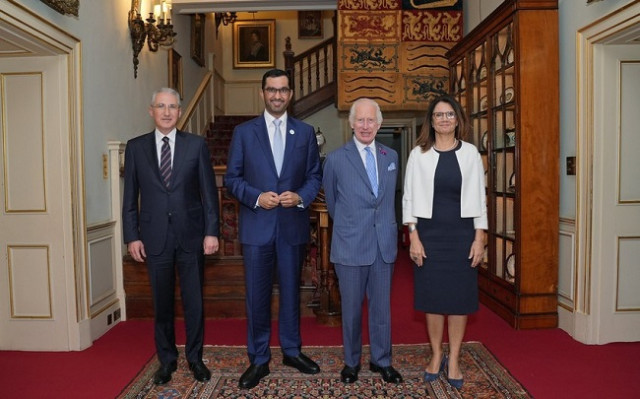Ahead of the meeting of the COP Presidencies Troika holding on Thursday, September 26, 2024, in New York City, the CAN International has urged the Presidencies to prioritise public, grant-based financing as the bedrock of equitable and ambitious climate action.
It said the development would embed just energy transition plans in the upcoming cycle of Nationally Determined Contributions (NDCs).
Initiated at COP28 in December 2023, the COP Troika comprises UAE, Azerbaijan and Brazil, that have decided to join forces and work actively together to keep the 1.5 degree Celsius climate goal within reach.
In its letter to the Troika, the climate network of almost 2,000 organisations warned against the exclusive focus and reliance on private investment to fund countries’ climate plans, which could disproportionately burden developing countries and ordinary people, and severely hinder progress towards the collective 1.5°C climate goal.
Tasneem Essop, Executive Director of CAN International, said, “There can be no climate ambition without equity. To achieve equity and ambition, developing countries need climate finance at a scale responsive to their needs, predictable and non-debt inducing.
"This is why we need developed countries to include their contributions of public finance in this new cycle of Nationally Determined Contributions (NDCs).
"Relying only on private sector investments has not provided the results expected in previous years and has allowed developed nations an escape door in delivering their obligations to providing climate finance as agreed in the Paris Agreement. Grant-based public financing is essential and achievable.”
In CAN’s view, the journey towards the global goal of limiting warming to 1.5°C should begin with an equitable, time-bound phaseout of fossil fuel production and consumption starting with developed countries, which have for far too long shirked their responsibilities and turned a blind eye to the rapidly worsening impacts of climate change around the world.
Fernanda Carvalho, WWF Head of Policy for Climate and Energy, said: “Nationally Determined Contributions (NDCs) are more than just numbers on mitigation, although they are a crucial element.
"Civil society expects the Troika to deliver a roadmap for NDCs that will collectively deliver 1.5°C alignment and climate justice. Neither is possible without significantly scaled up, grant-based public finance from developed countries to support developing countries in the transition. This is the real pact our future depends upon.”
David Knecht, climate expert at Fastenaktion Switzerland, said: “The next Nationally Determined Contributions (NDCs) will determine whether the world can course-correct to 1.5°C and deliver climate justice.
"The next NDCs must catalyse community-driven development. At the same time, the NDCs 3.0 need to include concrete fossil fuel phaseout plans, as agreed upon in Dubai, and we expect developed countries to lead on this, as well as on providing direly needed grant-based finance for the global transition. To signal to the world what is needed, the Troika must step-up and present NDCs that set the highest expectations.”
The NDC Troika meeting, taking place on the sidelines of the UN General Assembly, will feature government representatives from the United Arab Emirates, Azerbaijan, and Brazil.
CAN International urged the Troika to champion a just and equitable approach to financing the NDC cycle, ensuring that climate action benefits all, not just the wealthy.




















